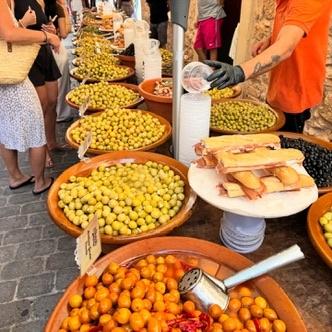What significance do pastries like ensaimada hold in Mallorcan food culture?
Similar Topics
mallorcan food culture
ensaimada pastry
traditional mallorcan cooking
artisanal craftsmanship
local culinary heritage
mallorcan cuisine
edible souvenirs
mallorca tourism appeal
Pastries such as ensaimada hold a deeply rooted significance within Mallorcan food culture, symbolizing both local tradition and the island’s rich culinary heritage. The ensaimada, a light, spiral-shaped pastry made from a dough enriched with lard (or "saïm," from which its name derives), is emblematic of Mallorca’s agricultural past and its unique approach to baking. Beyond being a beloved treat, it serves as a cultural icon, representing the artistry and care that go into traditional Mallorcan cooking. Its presence on breakfast tables and during festive occasions reflects not only a gastronomic preference but also a way of life linked to ritual and social bonding.
The process of making ensaimadas is labor-intensive and requires skill, highlighting the importance placed on artisanal craftsmanship within the island’s food culture. Families pass down recipes through generations, and many local bakeries take pride in maintaining authentic methods to produce this delicate pastry. Ensaimadas offer more than just taste; they connect residents and visitors alike to the island’s history, farming cycles, and communal celebrations. Whether enjoyed plain or filled with ingredients like cream, pumpkin jam, or chocolate, they showcase the versatility and creativity typical of Mallorcan cuisine.
Moreover, ensaimadas play a role in Mallorca’s tourism appeal, serving as edible souvenirs that allow visitors to partake in a piece of local tradition. The pastry’s distinct texture and flavor provide a tangible link to the island’s identity, underscoring the importance of food in cultural expression. In essence, ensaimadas are more than a sweet indulgence—they are a symbol of Mallorca’s enduring cultural legacy, representing the island's dedication to preserving its culinary arts while welcoming new generations to savor and celebrate its flavors.
The process of making ensaimadas is labor-intensive and requires skill, highlighting the importance placed on artisanal craftsmanship within the island’s food culture. Families pass down recipes through generations, and many local bakeries take pride in maintaining authentic methods to produce this delicate pastry. Ensaimadas offer more than just taste; they connect residents and visitors alike to the island’s history, farming cycles, and communal celebrations. Whether enjoyed plain or filled with ingredients like cream, pumpkin jam, or chocolate, they showcase the versatility and creativity typical of Mallorcan cuisine.
Moreover, ensaimadas play a role in Mallorca’s tourism appeal, serving as edible souvenirs that allow visitors to partake in a piece of local tradition. The pastry’s distinct texture and flavor provide a tangible link to the island’s identity, underscoring the importance of food in cultural expression. In essence, ensaimadas are more than a sweet indulgence—they are a symbol of Mallorca’s enduring cultural legacy, representing the island's dedication to preserving its culinary arts while welcoming new generations to savor and celebrate its flavors.
🧩 Related Questions
Related Question
What types of educational workshops are offered at the Lluc museum for families and children?
Related Question
How are traditional sweets incorporated into children's games during Mallorcan celebrations?
Related Question
Are there guided tours available that explain the almond sorting and quality control methods in Mallorca?
